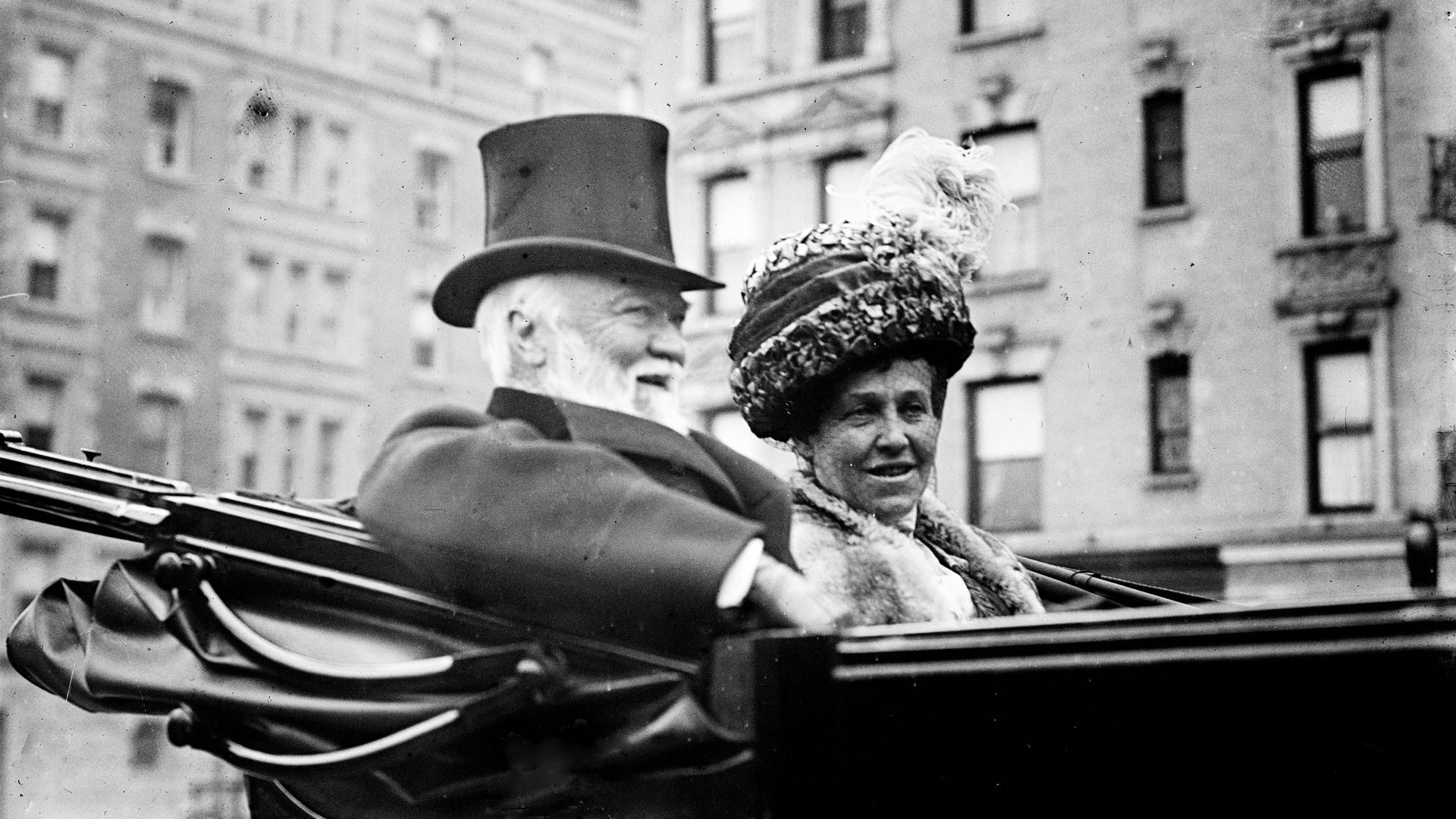A century ago, the U.S. didn't want a steel king — but now, maybe?
Add Axios as your preferred source to
see more of our stories on Google.

Andrew Carnegie, the Steel King, with his wife and top hat. Photo: HUM Images/Universal Images Group via Getty Images
More than a century ago, the federal government filed an antitrust suit against U.S. Steel for its stranglehold on the industry — but now the company plays an extraordinarily diminished role in global steel manufacturing.
Why it matters: If U.S. Steel, now the target of a bidding war, is purchased by an American company, that would mean even less competition in the domestic steel industry. But that might not necessarily be something to avoid.
- These days the federal government might be far more concerned with building a strong domestic steelmaker than it is with breaking up any potential "monster steel trust."
- That's a phrase once used to describe U.S. Steel, the behemoth created by John Pierpont Morgan, Andrew Carnegie (known as the Steel King), and Charles Schwab at the turn of the last century.
State of play: There are four large steelmakers in the U.S. Along with Cleveland-Cliffs and U.S. Steel, there's Nucor and Steel Dynamics.
- Cleveland-Cliffs earlier this month made a bid for U.S. Steel — with the backing of its union, the United Steelworkers.
- A tie-up between two of the four companies would normally be the sort of thing to draw antitrust scrutiny.
- But the U.S. steel industry is a bit player on the global steel stage — long ago eclipsed by foreign competitors that did a better job keeping up with technology.
- None of the four U.S. companies rank among the top 10 steel producers globally. But a combined Cleveland-Cliffs/U.S. Steel would make the list, per the Cleveland-Cliffs investor presentation.
Between the lines: Any deal would have to pass muster with the Biden administration.
- In evaluating the antitrust implications of any deal, the White House will need to balance competing administrative priorities, the FT points out.
- On the one hand, its support for unions and building a strong domestic manufacturing sector. And the Steelworkers' backing goes a long way. On the other hand, an aversion to seeing companies get too powerful.
What they're saying: So far, there's some bipartisan agreement here. J.D. Vance (R-Ohio) and Rep. Ro Kanna (D - Calif.) have both said that U.S. Steel should turn down offers from foreign companies.
- "Any steel acquisitions in the US must be led by American companies that support union workers," Kanna tweeted Monday.
